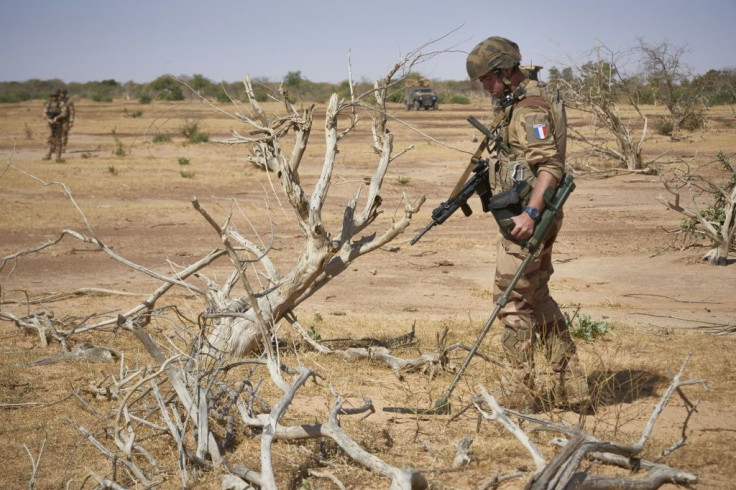Roadside Bomb Kills Children On Bus In Burkina Faso

Fourteen civilians, mostly schoolchildren, died Saturday when a roadside bomb blew up their bus in northwestern Burkina Faso, a security source told AFP.
Four people were seriously hurt in the blast in Sourou province near the Mali border, the source added, as children returned to school after holidays.
"The vehicle hit a homemade bomb on the Toeni-Tougan road," a second security source said. "Most of the dead are schoolchildren."
Meanwhile, the army reported an attack against gendarmes at Inata in the north on Friday, saying "a dozen terrorists were neutralised".
Security sources said the bus was carrying high school students returning from the Christmas holiday
There was no immediate claim of responsibility for the attack but jihadist violence in Burkina Faso has been blamed on militants linked to both Al-Qaeda and Islamic State groups.
The deaths came the week after 35 people, most of them women, were massacred in an attack on the northern city of Arbinda and seven Burkinabe troops were killed in a separate attack on their army base nearby.
Burkina Faso, bordering Mali and Niger, has seen frequent jihadist attacks which have left hundreds of people dead since the start of 2015 when Islamist extremist violence began to spread across the Sahel region.
The north of the country has been worst hit, with the capital Ouagadougou not immune to attacks.
In a televised address on Tuesday President Roch Marc Christian Kabore insisted that "victory" against "terrorism" was assured.
The entire Sahel region is fighting jihadist insurgency with help from Western countries, but has not managed to stem the bloodshed.
Five Sahel states -- Burkina Faso, Mali, Mauritania, Niger and Chad -- have joined forces to combat terrorism in the fragile region that lies between the Sahara and Atlantic.
Backed by former colonial power France, the G5 Sahel was created to great fanfare in 2014.
The centre piece of its strategy has been an initiative, launched in July 2017, to pool 5,000 troops from the five countries to wrench back control from ruthless jihadist groups.
But, hamstrung by insufficient funds, training and equipment, the force has only now reached a complement of 4,000 troops, and for many analysts seems to be losing the battle.
The nimble rebels have spread from Mali to Burkina Faso and Niger, as well as Chad.
Their hit-and-run raids are inflicting a mounting human, economic and political toll, sparking fears that the coastal countries to the south are next in line.
Since 2015, increasingly deadly Islamist attacks in Burkina have killed more than 750 people according to an AFP count, and forced 560,000 people from their homes according to UN figures.
© Copyright AFP 2024. All rights reserved.





















